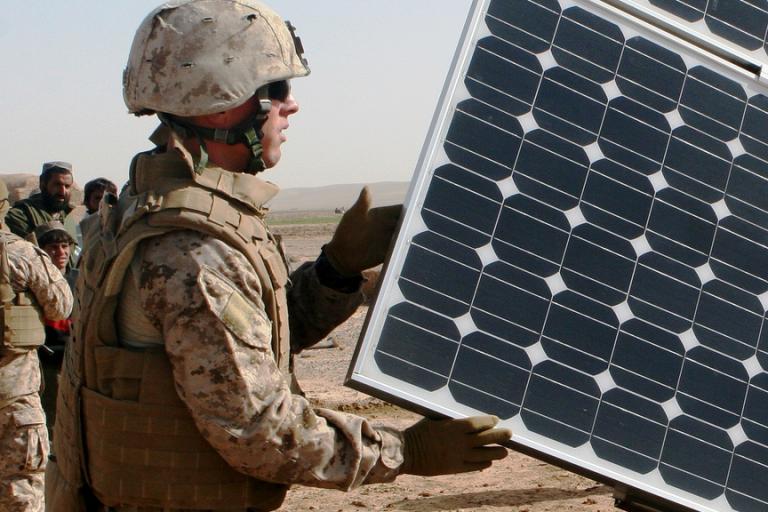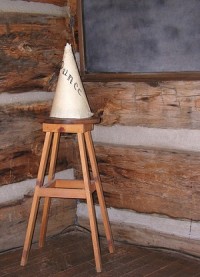The Up-Goer Five text editor (named after this awesome XKCD comic, in which we have a bad problem and do not go to space today) is a tool for simplifying your writing, or dumbing it down depending on your perspective. It checks text for words that are not among the 1,000 most common in English, and yells at you until you get rid of them. (In the previous paragraph, it did not like text, editor, awesome, XKCD, comic, tool, simplifying, dumbing, depending, perspective, text, among, common, English, or rid.)
Scientists have been taking to Tumblr with their Up-Goer-Five-ified mission statements, explaining their work in words you probably learned before kindergarten. A lot of their work is highly technical, leading to some stumbles (like the people who cheat by putting forbidden words in quotes, and the people who write like cave men). But a blogger at The Way Things Break managed to write an excellent, Up-Goer-approved explanation of climate change that even a Fox News commentator could understand.
What is Going On?
Our home is changing because of some things we do, like burning stuff from the ground for power. One of the big changes is that we are warming up. What happens as we warm up is important! Some changes might be good: time for food growing may be longer. But lots of changes will be hard: where and how much or little rain we get, how hot and cold it gets, how much stuff is under water, how bad the air is to breathe, and a lot more things will all change. How we live, how we eat, and how we plan for things very much are tied to how things are around us. Big changes are hard to go through.How Can We Know What Will Happen?
We can try to figure out what stuff might happen as we keep burning more and more stuff for power, and warm up. We can use computers to look forward. We can look at small changes from now and over the past couple hundred years, and think forward in time. We can even look way back into the very long ago past, at times when things warmed up or cooled down a lot, and learn from that!Is It Too Late?
The important thing to know is this: what we do going forward matters very much to how things will change. Making very big changes to our home, or changing it less, is something we can decide. We need to think very carefully about how much we want to make our home change, and think about all of things that might happen as we change it. There is a lot we don’t know about what will change, and that makes it hard to plan for change. It may be safer to make little change, especially as we learn more about the bad stuff that happens with big changes.What Can We Do?
There are a lot of new great things we can use for clean power that changes our home less. We can use the sun. We can use the wind. We can use water in many different ways. We can even use the same power the sun uses for its own power! All of these new ways of making clean power will keep our home more like it is now, and make it change a lot less than burning stuff for power. We can also use less stuff and power, and use the stuff and power we do use for doing more things. That will let us use less power to do the same stuff we do now.How Do I Help?
What kind of home do you want? What kind of home do you want for your kids and their kids? Keep that in mind as you decide what to do. If you want to help, you can use less stuff and power, and tell people you want to use more of the things that use new clean power. You can also ask people who decide things to think about our home when they decide stuff, and to help us move to new ways of making clean power.
This isn’t just a fun semantic exercise. Clear communication about climate change is crucial to fixing it — how can people feel motivated to make or accept changes when they don’t understand what they should do and why? And the earlier people understand it, the better (yes, I’m advocating indoctrinating our children — go nuts, trolls). So it’s really useful to have an explanation that a child could understand.
If it weren’t a waste of paper, and therefore counterproductive, I’d recommend printing this out to hand to your loudmouth uncle at Thanksgiving, chatty dickwads in the grocery line, etc. For the sake of the trees, though, you should probably just get it tattooed on your arm.



